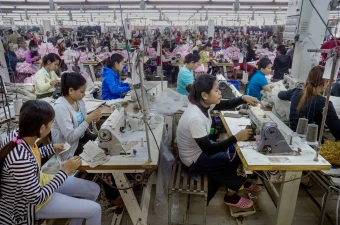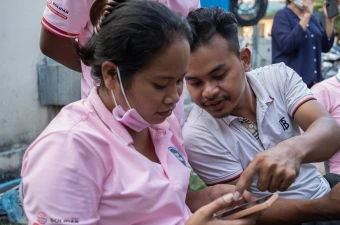How Cambodia’s textile workers face debt and strive for better living standards
From 1 January 2025 the new minimum wage of USD 208 will be effective in Cambodia’s garment sector. Unfortunately this remains far from bridging the gap to a living wage as reveals the latest 2024 edition of the Fair Work Monitor. It sheds light and illustrates persisting challenges in achieving fair wages and decent work in Cambodia’s textile industry. It focusses on wages, working conditions, and labour rights. The results are alarming, given that the garment, textile and footwear sector in Cambodia directly provides income to support a fifth of households in the country.

“These data help us as trade unions in our dialogue with companies and the government. It clearly highlights the urgent need for action to improve workers' lives
Athit Kong, leader of Cambodian Confederation
of Apparel Workers' Democratic Union C.CAWDU
CNV Internationaal partnered with seven unions in Cambodia to gather data on wages and the cost of living based on participate research, revealing the significant gap between current earnings and what workers need for a dignified life. Below, we delve into the key findings and recommendations from the 2024 Fair Work Monitor and discuss how these insights contribute to the fight for fair wages.
The case for higher Wages in Cambodia
In September, Cambodia’s new minimum wage for 2025 was set at USD 208, a modest USD 4 increase that falls far short of the USD 14 increase unions advocated for based on CNV Internationaal’s Fair Work Monitor findings and minimum wage criteria.
This small increment highlights the 41% gap between the average worker’s income and the cost of living, forcing 73% of workers into debt just to cover basic needs. More than half of workers depend on multiple incomes to make ends meet, yet many still struggle to meet their basic needs.
The Fair Work Monitor has identified low wages as the top human rights risk in Cambodia for the third year running. The report provides practical steps for brands to address low wages. It also highlights that achieving living wages through minimum wage negotiations or a collective agreement will remain a significant challenge without commitments from brands to improve purchasing practices, including better pricing to allow for wage increases.
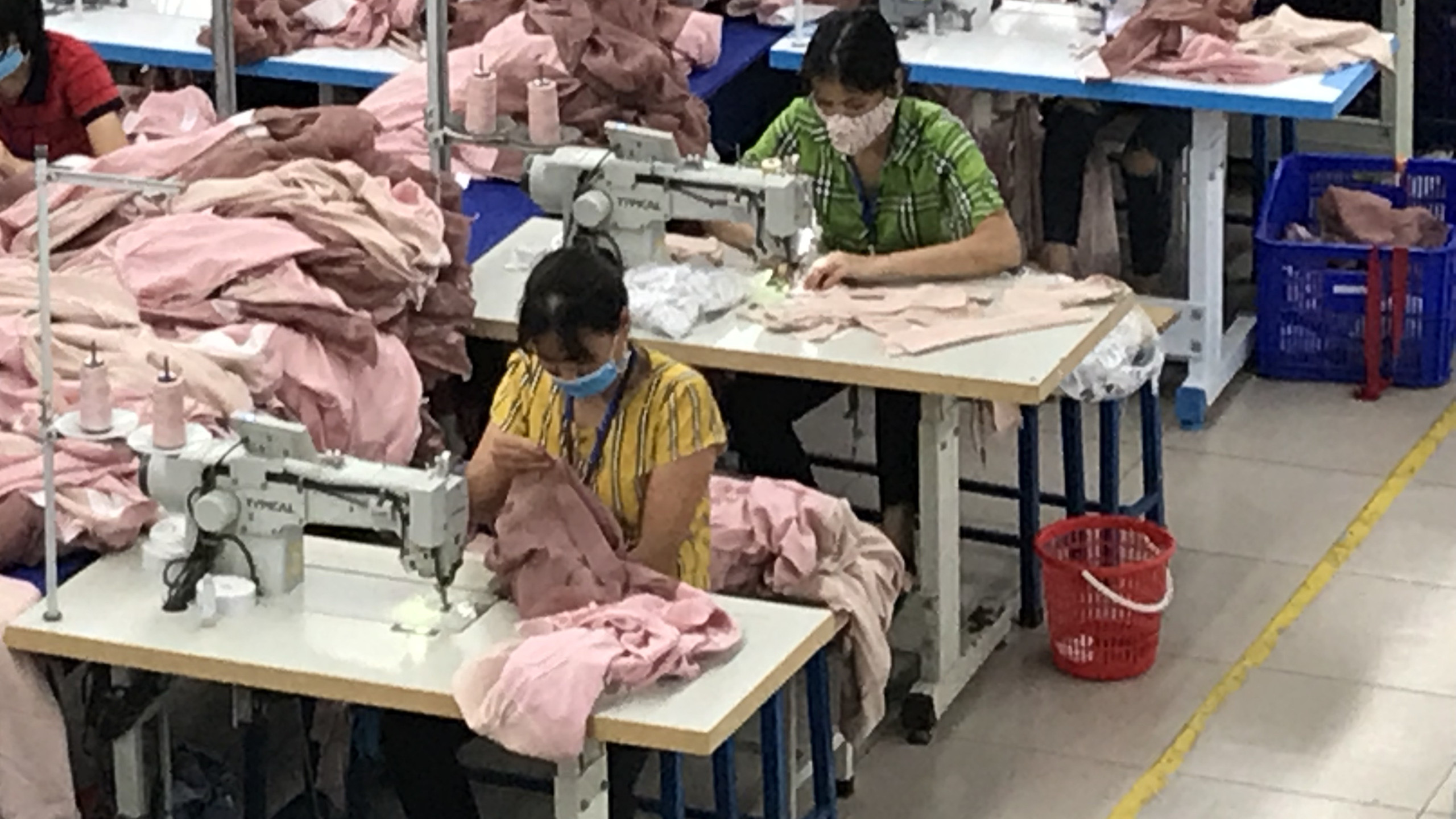
Key Findings from the 2024 Fair Work Monitor
Lack of access to essentials
Significant numbers of workers lack access to food and healthcare:
- f30% of workers have run out of food in their household at the end of the month.
- 32% report they cannot buy the prescripted eyeglasses they need.
- 37% report they cannot afford the dental care they need.
- 42% lack money to buy medication, causing some to live with persistent pain.
The cost of living has fallen slightly, due to slowing inflation, lower energy prices and a cautious recovery in the Cambodian economy. However, workers' actual income (i.e. basic salary plus performance bonus, seniority bonus and travel allowance) is still insufficient to meet their basic needs.
The median total expenditure reported by workers - food, non-food expenditure, remittances and savings combined - is $412 per month. This means that at least half of respondents spend $412 or more per month on their living expenses, more than double the current minimum wage of $204.
Fifteen percent (15%) of respondents who reported borrowing money did so to buy food, indicating serious food insecurity among these respondents. Many respondents also reported borrowing money for other basic needs, such as transport to work and medical expenses.
Financial vulnerability and debt
- 73% of workers borrow money for basic expenses, perpetuating cycles of debt.
- 82% cannot save for emergencies, leaving them vulnerable to unforeseen events.
- Parents and caregivers are particularly vulnerable, with higher costs and fewer savings.
A significant number of workers have to borrow money to cover basic expenses (73% of workers in 2024 compared to 77% in 2023). The median amount borrowed has started to increase in the past year, from $5,000 in 2023 to $6,000 in 2024. Some workers even report that they are in debt cycles, meaning that they borrow from one source to pay off another. This worrying trend is compounded by the fact that the majority of workers (82% in 2024 compared to 70% in 2023) have no money saved for unexpected events.
Parents and other carers are particularly vulnerable to these shocks. Workers with children dependent on their income account for 73% of all respondents. These workers have the lowest savings and the highest monthly expenses compared to single, married and widowed workers without dependent children. These findings are alarming, given that the garment, textile and footwear sector in Cambodia provides income for one-fifth of the country's households.
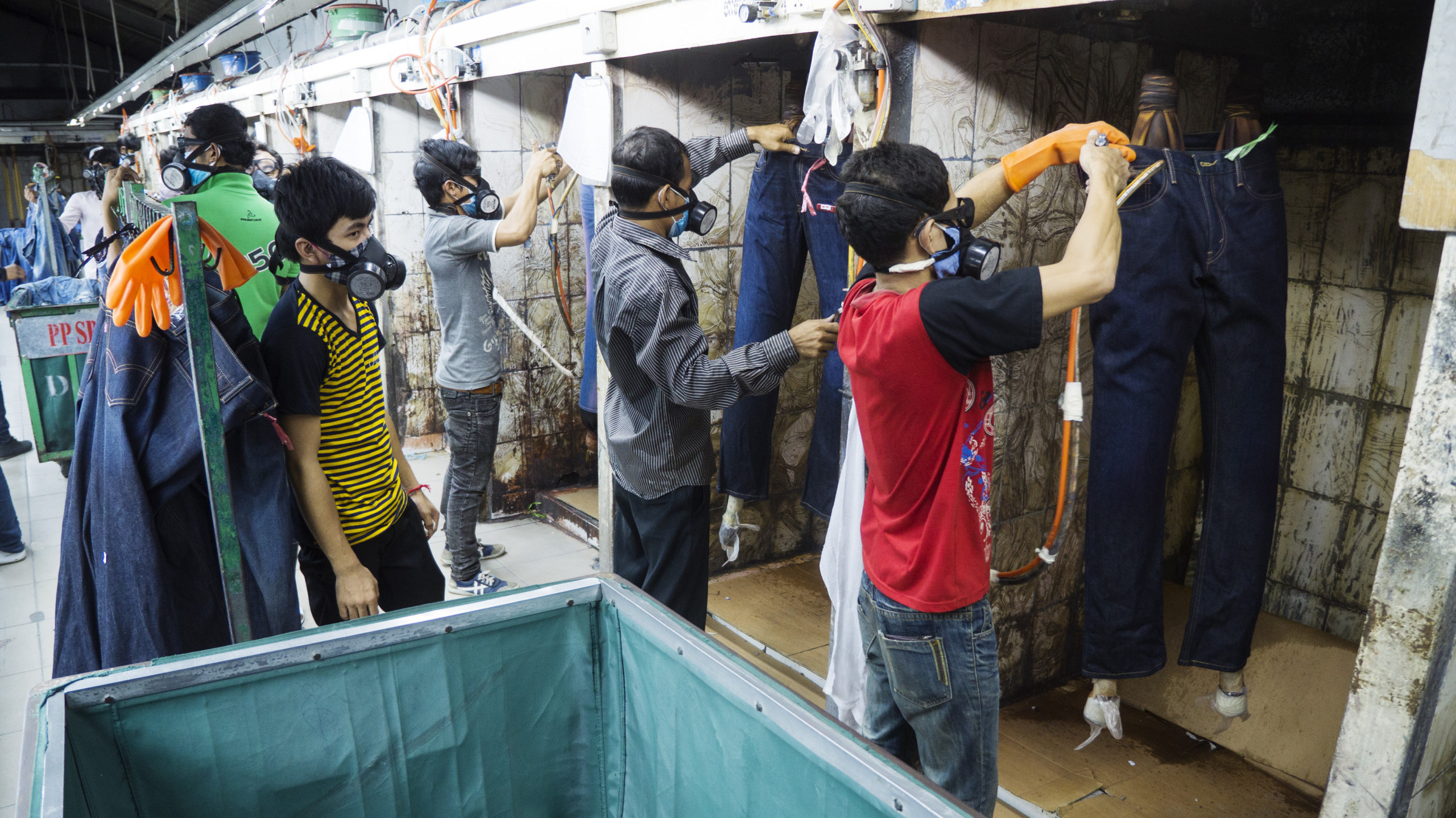
Recommendations for brands
To address persistent challenges, brands must:
1. Revise Retail and Purchasing Practices
Ensure strategies do not exacerbate low wages or precarious work.
2. Conduct Meaningful Due Diligence
Engage directly with stakeholders and workers to identify and mitigate risks.
3. Support ACT Collaboration
Actively participate in this initiative to strengthen collective bargaining and social dialogue.
ACT: A promising step forward
An important promising initiative that demonstrates the value of social dialogue among brands, trade unions, and other stakeholders in Cambodia’s garment sector is called ACT (Action, Collaboration, Transformation. This collaboration promotes collective bargaining agreements and living wages, supported by improved purchasing practices, setting a precedent for sustainable industry growth.
Next Steps:
Join us to contribute to Fair Work
CNV Internationaal will further share the findings of the 2025 Fair Work Monitor during upcoming events. These discussions aim to inspire collaboration and action among stakeholders to close the wage gap and improve working conditions.
Are you interested in attending one of these events or learning more about how you can contribute to positive change? Contact us at i.delijserl@cnv.nl.
Together, we can achieve fair wages and dignified working conditions for Cambodia's apparel workers. For more information, visit our Fair Work Monitor page.
Join us for the Final Deep Dive Session of the Year!
We’re pleased to announce that Isabelle de Lijser, Living Wage Lead at CNV Internationaal, and Athit Kong, President of the Coalition of Cambodian Apparel Workers Democratic Union (C.CAWDU), will be among the experts speaking at the upcoming End of the Year Living Wages Deep Dive webinar hosted by The Industry We Want on:
Wednesday, December 11/en/topics/special-topics/livingwage
11:00-12:00 CET
In this session various experts will focus on the Wage Gap metric and its impact on improving worker conditions through data, social dialogue, and worker involvement.
- Isabelle de Lijser will share insights from the CNV Internationaal's latest Fair Work Monitor results in Cambodia, showcasing its role in tracking living costs, wages, and working conditions in the garment sector.
- Athit Kong, leader of the apparel workers' union C.CAWDU in Cambodia, partner organisation of CNV Internationaal will explain how the union uses data from the Fair Work Monitor for minimum wage negotiations and collective bargaining.
Don’t miss this opportunity to engage on key challenges and solutions with various experts in the apparel supply chain!
🔗 Register here and save the date
Looking forward to connecting with you at this insightful event!
Let’s work together to make the industry more equitable, sustainable and resilient.
The Fair Work Monitor: an innovative tool
Since 2022, CNV International and local trade unions have been conducting participatory digital surveys with the Fair Work Monitor in Cambodia's garment and footwear sector. The Fair Work Monitor helps to involve trade unions in impactful HREDD throughout the textile sector, inclusing garments, footwear and bags.
Through the Fair Work Monitor unions collect data directly from workers on their working conditions directly from workers through structured digital surveys, providing unions with valuable insights. The Fair Work Monitor enhances understanding of labour conditions, contributing to improvements in international supply chains.
Enhancing HRDD in textile sector
CNV Internationaal has made significant strides in advocating for labour rights in the garment supply chain, specifically in Cambodia, Indonesia, and Vietnam. By partnering with local trade unions, CNV Internationaal supports efforts to achieve fair wages, safe working environments, and freedom of association in the textile industry and beyond.
Fair Work Monitor 2024
>Download Full report
Related Articles
Publication date 10 12 2024
